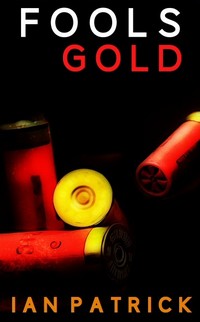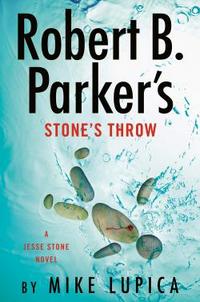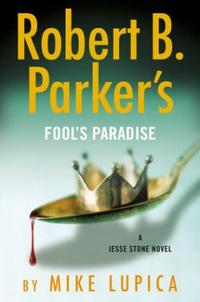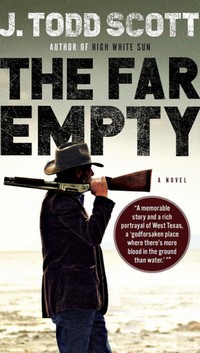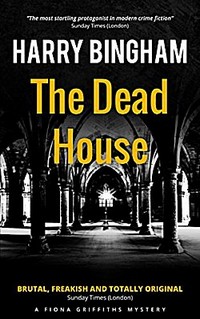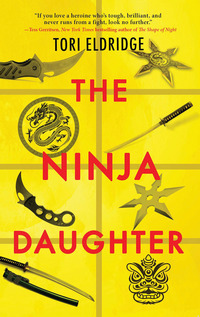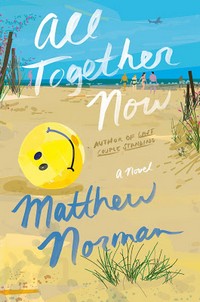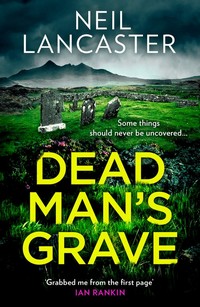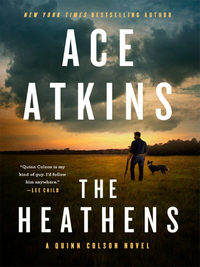
Tanya Jane Byrd, known to her friends as TJ, never gave a damn about being famous. But here she was, four days on the run from Tibbehah County, Mississippi, with that girl Chastity passing along the burner phone to show they now had more than a hundred thousand followers on Instagram. They only had six posts, the newest one from just two hours ago after TJ cut her hair boy short, dyed it black as a raven’s wing, and made her ultimatum to that cowardly son of 2 bitch Chester Pratt. She called him out for not only her mother’s murder but the money she and her little brother John Wesley were owed.
On the forty-five-second clip shot outside the Tri-State Motel in Texarkana, she held up her fist on the diving board to an empty pool and said, “Fair is fair,” remembering the line from one of her mothers old VHS tapes in the trailer.
“What do you think?” Chastity asked.
“I think I better drop that phone into the nearest creek.”
What’s The Heathens About?
Seventeen-year-old TJ Byrd has spent her life convinced that her father was killed by Tibbehah County’s Sherriff, the uncle of the current Sherriff. This has left her with a pretty jaded view of law enforcement. So when she’s suspected in the disappearance—and then the murder of her mother, it’s understandable that she doesn’t assume she’s going to get a fair shake from those that suspect her. So, she grabs her little brother and with her best friend and her boyfriend, they hit the road and run. They’re not sure where they’re driving to, but it’s far away from Tibbehah.
That’s maybe not the brightest move, but she’s desperate.
Former Deputy/now US Marshall, Lilly Virgil assumes that TJ killed her mother. Lilly has seen what happens when the two of them fight and assumes that TJ has gone one step too far. Lilly pulls some strings and gets herself assigned to the fugitive hunt for TJ and the rest.
Sheriff Quinn Colson isn’t that convinced of TJ’s guilt but would like to talk to her about what happened. With her on the run, he does some legwork on the case on his own—looking into her mother’s boyfriend, finances, and history. The more he finds, the less he’s convinced that TJ had anything to do with her death, he just needs to find enough evidence to convince Lilly.
Meanwhile, Johnny Stagg is at work greasing palms and making plans for the future—and what he has in mind will look entirely different than anything we’ve already seen from him. He’s also trying to get a father and son to join his team—they have a penchant for violence, and Stagg is pretty sure he’ll have some work for them.
TJ Byrd
…I’m real sorry, TJ. You’re too young to got through a mess like this.”
“My life’s been a mess since I was born,” TJ said. “Don’t shed a tear for me, Sheriff.”
TJ Byrd is one of those characters that you can sense that an author really enjoys writing, and it carries over to the reader—she’s just a blast to read about. I felt like I got a better sense of her than I have a couple of protagonists this year. I want to write a lot about her, but I won’t because I just don’t want to take away the joy of discovery from a reader. So let me just say that if you can see the joy in reading about a rebellious, stubborn, delinquent teenager on the run from the law because she’s suspected of the gruesome murder of her mother, you’re really going to have fun with her. If that kind of character doesn’t really seem like something you’d enjoy—give Atkins a chance to prove you wrong.
The only thing I do feel safe in saying is that Atkins made a great Spotify playlist based on the character, and it tells you a lot about her (and makes pretty good reading/writing music if you’re dragging a bit).
A New Side of Colson?
The little girl wide awake now, as Maggie wiped her face with a napkin and handed her over to Quinn. He held his daughter tight, the child’s eyes wide and unfocused. Halley so small, light in his lap, while she checked out all the smells and sounds of the Fillin’ Station diner.
“She sure is curious,” Maggie said.
“Skeptical,” Quinn said.
“I guess she comes by it naturally.”
Quinn’s been a great step-dad to Brandon—and was a good uncle to Jason. But it feels different now with Halley in the picture. It seems like Quinn’s going to be a good, involved dad (as much as his job allows). I got a real Joe Pickett-vibe off of a couple of passages with Quinn at home in this one. Which is good—Joe at home is the most appealing part of the character, so seeing Quinn in this light makes me look forward to seeing how he develops along these lines.
Mythology vs. “Monster of the Week”
It’s a little off-genre here, but when I was thinking about this novel and its relation to the rest of the series, I thought about The X-Files and Fringe. There were essentially two types of episodes for those series—”Mythology” episodes that advanced or at least explored the overarching story about the series, and “monster of the week” episodes that were pretty much about some freakish thing that was taken care of within one episode—and while nods might have been made towards the mythology, overall it was independent of that story.
The Heathens follows a major mythology novel, The Revelators that tied up storylines that went back to the beginning as well as some new ones. The Heathens takes a break from it, telling a largely stand-alone story. This is good, it gives readers a chance to catch their breath, it gives Atkins a chance to tell a different kind of story while beginning to set the stage for the next big mythology chapter.
That said, it’s not “mythology”-free. The “new, improved” Johnny Stagg (who will remind you a lot of the “old, corrupt” Johnny Stagg) starts making plans, giving readers a hint about the kind of misery that’s heading to Tibbehah County and Quinn’s life. And there are references to and advances on some of the ongoing subplots, but they’re not the focus of the novel.
Edging Toward a Spoiler In This Paragraph
I don’t like to think this—even about fictional characters—but there’s a character death that brought me just so much pleasure. I’m not going to ruin it, as much as I want to. Murdered Character is someone I find nothing redeemable about—Stagg, at least, is entertaining to read about/detest. But this one? Didn’t enjoy reading about them, was hoping never to see them again—but if Atkins is going to bring them back just so he can kill them off? That’s more than okay by me.
So, what did I think about The Heathens?
This is a great way to start phase 2 of the Quinn Colson series, taking a little breather from major arcs to focus on this story—one that Quinn and Lilly really play supporting roles in—is a nice break from the intensity of the last couple of novels.
It’s also a great place to come on board the series if you haven’t read any of it before.
Lilly and Quinn being on opposite sides of the case—not really working against each other but sure not helping each other too obviously—is another nice touch. There’s an honest difference of opinion, and on the whole, they treat each other like adults set out to get to the bottom of something, no matter their divergent positions when it comes to how to deal with TJ.
Especially in the Quinn Colson series, Atkins has a history of giving us solid plots, great characters, and something extra. That’s the same here, but it feels a little fresher, a little rejuvenated after The Heathens. Choosing to focus on a few kids from Tibbehah County, while Lilly and Quinn are closing in on the truth (and the teens) is a nice change of pace, too.
As much as I enjoy his Spenser novels, it’s these Quinn Colson books where Atkins can show the world what he’s capable of. This is no exception to the rule—do yourself a favor and pick this up.


This post contains an affiliate link. If you purchase from it, I will get a small commission at no additional cost to you. As always, opinions are my own.


![]()



 Grab a book, any book.
Grab a book, any book.